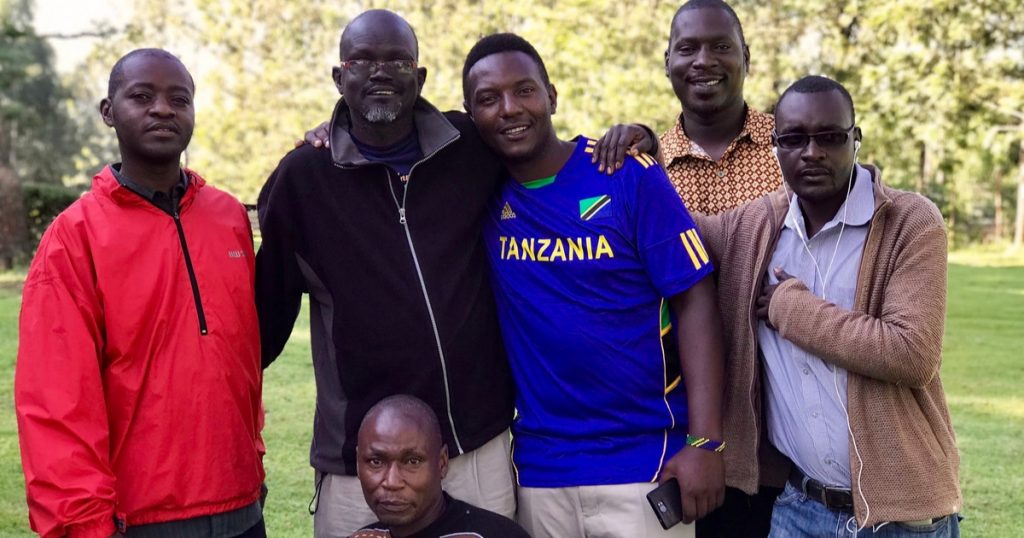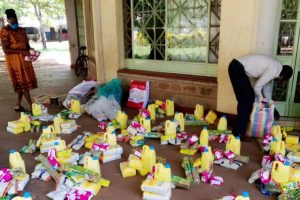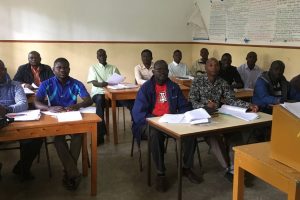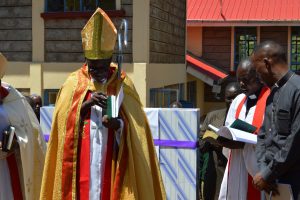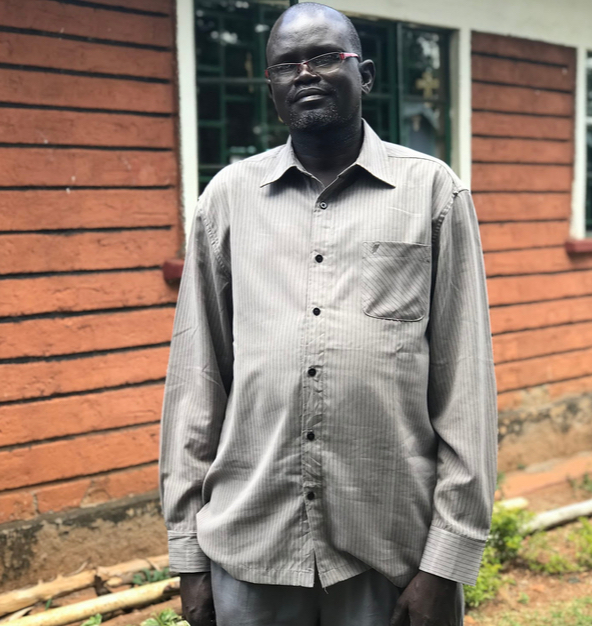
Part I: Family and Birthplace
I, Abraham Thiong Nyang, was born in 1973 at a remote African village called Pathuyinth, Bor, in Jonglei, South Sudan. I have ten siblings, three of whom died at an early age. My father kept cattle. My parents and siblings never attended school; only my youngest brother and I went to school. I spent most of my young life in the cattle camp helping my father look after the sheep, goats and calves. I was parted from my family at fourteen. My father died in my absence. This is terrible in my heart, but praise be to God that he was baptized into Christ.
Part II: Journey to Ethiopia
In 1983, a war broke out in Sudan between the regime in Khartoum and the Southerners. Many men from southern Sudan fought for the independence of the southern region.
In 1987, the revolt movement, Sudan People Liberation Army (SPLA)/Sudan People Liberation Movement (SPLM), moved young children to Ethiopia for education. Whether the children received an education or not caused much debate. I was among tens of thousands of boys sent to Ethiopia. We travelled on foot for two weeks to reach Ethiopia; we settled in Pinyudo.
Life became hard: we did not have food, medicines, clothing or shelters. Nothing for living was there. We ate leaves for three months. Many children died of diseases caused by the situation.
The children buried their dead fellows in rocky soil. Since the graves were shallow, the dead bodies often resurfaced. This caused more diseases that resulted in further deaths. After a year, I joined the military and did what was required of a soldier.
Part III: Becoming a Christian
In our platoon, I had a good friend who was a Christian; this friend introduced me to Christian teaching. In 1988, I was baptized and joined the church choir. After the fall of Magistu’s Regime in 1991, we returned to the Sudanese border. I cannot explain the horrors I witnessed after the fall of Magistu’s regime.
In 1992, we went to Kenya and settled at the Kakuma refugee camp. I became a parish youth leader and then was promoted to an evangelist. I was sent to an Anglican Bible School and graduated with a certificate in theology. On May 30, 1999, I was ordained and assigned to a parish.
However, my conscience started questioning Anglican doctrine; I started denying ordained women permission to preach to my congregants. This led to tough opposition, but most of the parishioners I served supported me.
In 2005, I married and returned to Sudan. To my dismay, I found the church mixed with local traditions; Christianity could not be separated from traditional beliefs. A so-called “prophet” claimed God sent him. This man confused pastors by deciding a certain place was sacred. All Christians in the area took their offerings there to appease God lest He curse the people.
I objected to this practice and tried to discuss Biblical teaching with some of the pastors but to no avail. To understand the church’s teachings on the matter, I questioned the bishop at the pastors’ conventions. Regrettably he ignored my questions.
The bishop referred me to the local politicians and army generals who he thought should answer my questions. The bishop’s position never satisfied me; I didn’t expect politicians and generals to answer questions concerning church doctrine.
Consequently, I wrote an article against the teaching, and a newspaper published it on Sept. 18, 2010. The article stirred up much opposition against me; I was accused of being a betrayer and colluding with Arabs in Khartoum because the newspaper that published my article was the Khartoum Monitor. Church leaders branded me with many bad names and dismissed me from the church. Even some of my friends avoided me out of fear.
At the time, my favorite Bible passage comforted me: “Beloved, do not be surprised at the fiery trial when it comes upon you to test you, as though something strange were happening to you. But rejoice insofar as you share Christ’s sufferings, that you may also rejoice and be glad when his glory is revealed. If you are insulted for the name of Christ, you are blessed, because the Spirit of glory and of God rests upon you” (1 Peter 4:12–14).
One thing I knew: God was with me. Threats did not trouble me, and my wife stood behind me. When some people came to convince me to repudiate what my conscience believed, I quoted John 9:35: “Jesus heard that they had cast him out, and having found him He said, ‘Do you believe in the Son of Man?’”
I said, “Take it easy guys; Jesus will find me like the blind man who was thrown out by Pharisees.” I didn’t have any idea of going to other Christian churches.
But our plans are not always God’s plans. Because of the Episcopal Church of Sudan (Anglican) teaching and other factors, on June 12, 2011, the South Sudan Evangelical Lutheran Church (SSELC) was established. This, however, only aggravated the problem. The Anglican preachers started calling the SSELC “Lucifer church” to scare people away from joining.
Knowing nothing about Lutheran teachings except Martin Luther’s reformation in the 16th century, it became difficult to have worship. We started our services with the Apostle’s Creed and ended with the Lord’s Prayer. We stopped the Divine Service for two years. It was difficult to know which Lutheran Church body was liberal or which was confessional. In fact, no one among us knew the word “confessional,” but we learned it later. Thanks be to God, some men who were with me at Kakuma as boys went to the USA. I was their pastor.
I asked them to connect us with a Lutheran church in the United States. It was a gamble, but it worked. One of them started attending Lutheran church services and connected us with an LCMS congregation. After five months, we received 11 copies of Dr. Luther’s Small Catechism. From there, the door was opened, and we saw the light of Lutheranism. Afterward, some Lutheran pastors from the LCMS came and trained us.
Finally, Christ found me with my colleagues in the SSELC. Now we confess the same faith with the confessional Lutheran churches around the world. I, along with a few other individuals, have benefited from the scholarship granted by our brothers and sisters in Christ from The Lutheran Church—Missouri Synod (LCMS).
The story is written by Abraham Thiong from South Sudan, seminarian at Matongo (Kenya).
